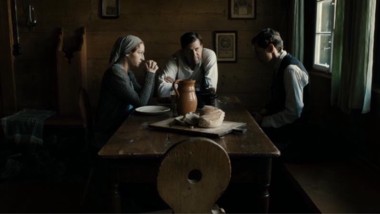There aren’t too many directors who can lay claim to their own adjective. Even our best-known filmmakers today don’t usually make the grade—you never hear people describing anything as Spielbergian or Scorsesian, however powerful their stories might be. And yet one director’s vision has so invaded our collective subconscious that even those who haven’t seen his movies often understand the meaning of the word that is built upon his name: Felliniesque.
Federico Fellini was that man. The Italian film director and screenwriter was less a visionary than a man with a vision, one that caught the fancy of the filmgoing public in the1960s. His Italy was populated by a troupe of carnival types and circus clowns, and the world of his films so captivated his audience that today his films are still regulars on critics’ best-of lists, and continue to inspire the next wave of art-house directors eager to capture the odd mixture of romanticism and surrealism that Fellini did so well.
For a taste of one of his best concoctions, it’s hard to beat La Dolce Vita, his 1960 story about the gossip columnist Marcello Rubini (Fellini favorite Marcello Mastrioanni), whose newspaper job brings him into contact with vapid film stars (Anita Ekberg) as well as prostitutes and socialites (who, oddly enough, turn out to be equally bored). The film, which also stars veteran Anouk Aimée, screens on Sunday and Thursday at 7 p.m. at Amherst Cinema. UMass Amherst Professor Emerita Dr. Carolyn Anderson will be on hand to introduce the first screening on Sunday.
Also at Amherst this week is Beyond Iconic, screening Tuesday, April 8 at 7 p.m. A documentary built on the iconic (there is no other word that does it justice) work of photographer Dennis Stock, it features a great number of shots that find their way to the bedroom walls of teenagers every year. But Stock’s work is not the flash-in-the-pan light-show familiar to matinee stars, but something deeper; an art that speaks to the fame of its subjects while still exploring the wider notions of fame itself. Director Hanna Sawka will be on hand for the Tuesday evening screening, and will answer questions about her film.
Also this week: The Pioneer Valley Jewish Film Festival wraps up another season with a smattering of late-week films. First up is Ladies’ Tailor, showing in a free screening on the UMass campus. (For details on all films, visit pvjff.org). Set in Kiev on the even of mass destruction, the film follows a family as they argue and reminisce while getting ready to leave their longtime home.
On the heels of that film comes Closed Season, in which a Jewish refugee becomes a stand-in for an impotent farmer eager to have a child with his wife. If you think that sounds like a bad idea, wait until the Nazi patrolman comes knocking. Christian Rogowski, Professor of German at Amherst College will introduce the film, which shows twice on Thursday.
And finally, Jealous of the Birds explores the choice made by 15,000 Holocaust survivors to remain in Germany after World War II. Filmmaker Jordan Bahat asks the question everyone wants to ask: Why? With interviews of survivors, children of survivors, and the children of the perpetrators, Bahat’s film becomes something wider in scope than a look at one war. Instead, it becomes an exploration of confrontation and forgiveness, of guilt and survivor’s guilt, and of what it means to be at home in one’s own country.•
Jack Brown can be reached at cinemadope@gmail.com.



